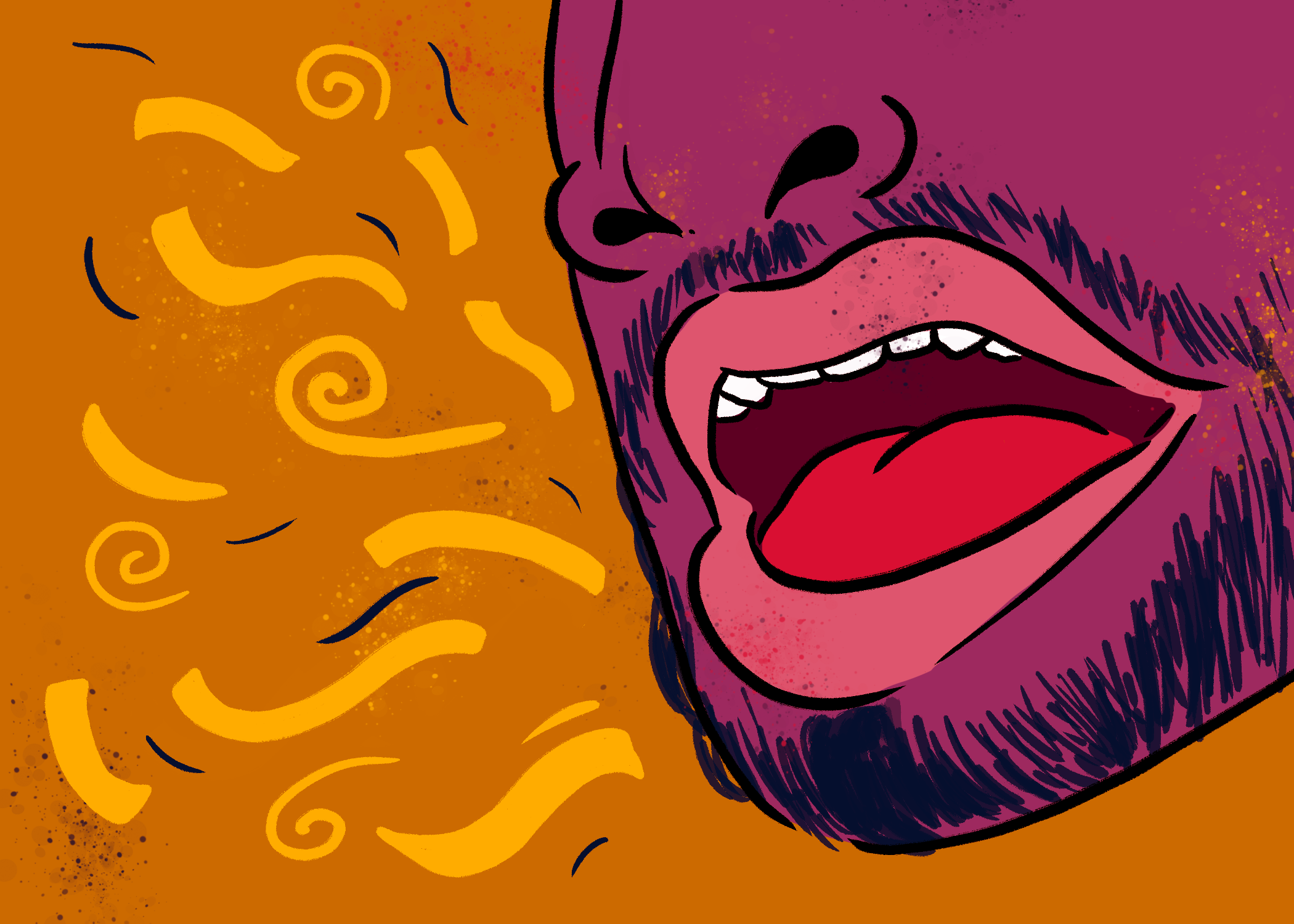Donyae Asante is early for our interview at a coffee shop in Logan Square, and greets me warmly with a big hug. He is animated and talks with his hands, which sport a sparkly manicure. A genre-bending soul artist from Woodlawn who now lives in Rogers Park, Asante has performed across Chicago in venues such as The Elbo Room and Uncommon Ground. The singer was eager to share his forthcoming singles and album, and open about his current inspirations that have influenced the new directions he is taking his music.
“I grew up around gospel. Some of my very first solos were gospel songs so gospel was like a huge influence for me,” he said. Asante cites Chance the Rapper, who is known for his use of church-like choirs and religious imagery, as one of his many inspirations. “What we’re doing right now is mixing gospel and hip-hop. Like Chance is doing,” Asante said. “I think genre shouldn’t just be boxed into one label… You don’t have to be talking about God, necessarily, to be doing gospel.”
He talked about the many themes within gospel music, and how the genre can conjure pictures of resilience and survival. These are messages that he purposely strives to communicate in his own music. “I want people to listen and feel that they can push through whatever and fight… I’m always trying to inspire. Whether it’s my lyrics or just the sound of my voice.”
This exploration of gospel music—its rich sounds and soulful lyrics—is a new venture for Asante. He sums up some of his earlier work as addressing past struggles, such as finding acceptance as a gay Black man. “I just feel like I’m so much stronger now,” Asante said. He is finding ways to celebrate that new strength through this album. “What’s cool about this new era that I’m experiencing is that I can inspire people with just sound. Not just lyrics.”
Asante highlighted how Black Americans experience the generational trauma of slavery while also facing continued discrimination through redlining, segregation, police brutality, and more. “As Black people, we are taught to persevere through some heavy stuff,” he said. He hopes to convey through his art that you don’t always have to face the heavy stuff alone, and that there is resilience in vulnerability. “It’s okay to be vulnerable and set boundaries. I think that all of that is resilience.”
Part of that radical vulnerability is allowing space to mourn, an idea that Asante addresses through the arcs of his new singles. One of his new singles, “Amerikkka”, is both sweet yet solemn, and serves as a commentary about the reality of being Black in a country that has systematically sought to destroy the Black community. “What’s so cool about this song is that it says we’re in mourning, but we’re not staying in mourning. We’re going to fight.”
Asante’s soaring vocals provide a backdrop for the sobering elements within the song. “Amerikkka” contains samples, including a clip of Eric Garner’s daughter singing that her father couldn’t breathe. And while there are so many people to mourn in the Black community, Asante also makes room for celebration. “I need to step out of my little box and talk about these experiences that I feel like a lot of Black people are feeling, and show us that we’re going to be alright. We don’t have to stay in mourning.”
The second single, “Sellout,” which along with “Amerikkka” will be released on streaming services in March, is a celebration of Asante’s personal journey towards self-acceptance. “I feel like, me being an openly Black gay man… I always had to jump through hoops to prove myself to people who looked like me,” he said. “I was never Black enough, and I was also marginalized because I’m gay.” The song borrows from a Marvin Gaye hit, replacing “you’re” with “I’m,” making for a validating croon of, “I’m all I need to get by.” Asante reflected on that lyric change: “I always felt like a sellout. But now I don’t need that validation anymore.”
Asante is more than a musical artist: he spends some of his time attending and giving talks in Woodlawn. “Last year was a lot of performing and I think I love the aspect of performing, but what I more so enjoy now are these conversations,” he said, noting how he enjoys being interviewed and speaking on panels. “I think that this album is bigger than performing.”
The new album, slated for release this summer, is called Inaugural Address. “It’s addressing so many people,” said Asante. “It’s addressing America and marginalized people. It’s addressing my own people and people that have doubted me and missed out on the man that I’ve become.”
The theme of resilience in his album is clear over the course of our conversation and within revelations about his new direction. “I’m smiling on the album cover,” he said. “None of my past album covers I’ve smiled. I think that I’m happier and I think that it’s because of this unapologetic theme that this album has… I can’t wait for people to hear it.“
Inaugural Address is a celebration of things ending, of pushing past barriers and honoring the journey of healing. Using both his spirituality and pop influences, Asante finds light in the darkness.
Sarah Thomas is a contributor to the Weekly. Fresh from Milwaukee, she spends most of her time in coffee shops with comic books, and her interests include the arts, social justice, climate change, and Black feminism. She last wrote for the Weekly in 2018 about a “literary mixtape” that considered the word “Chiraq.”


Really well written!